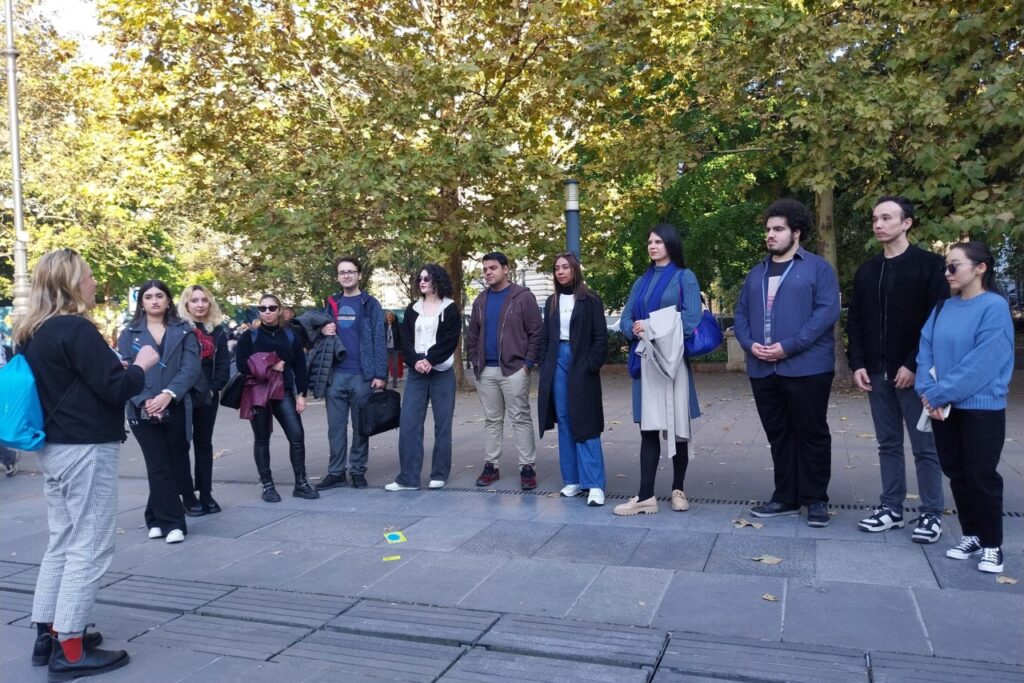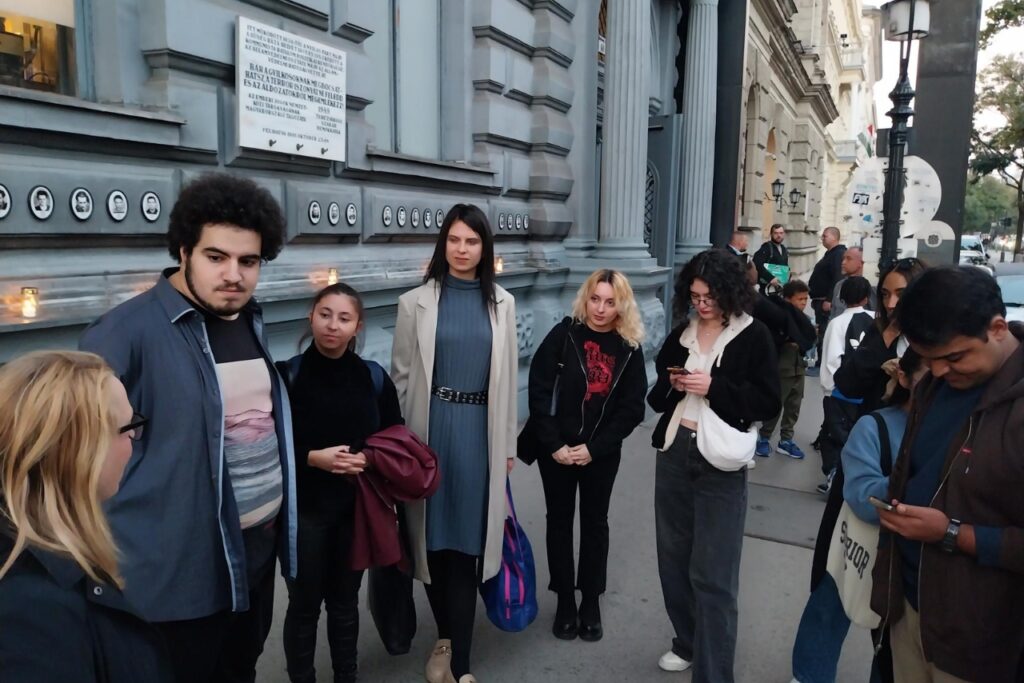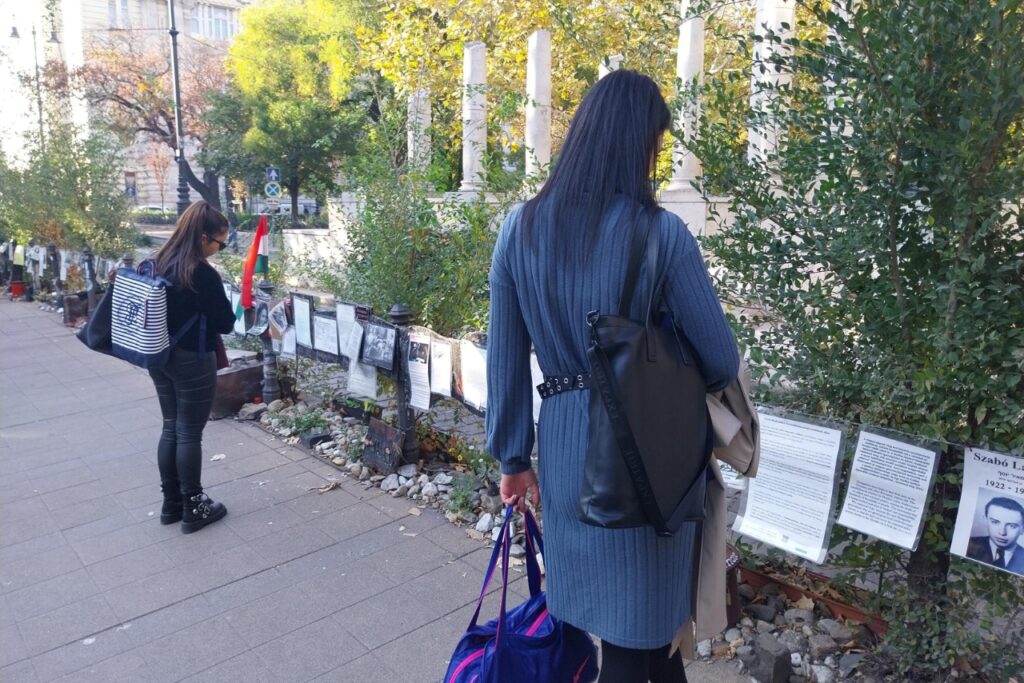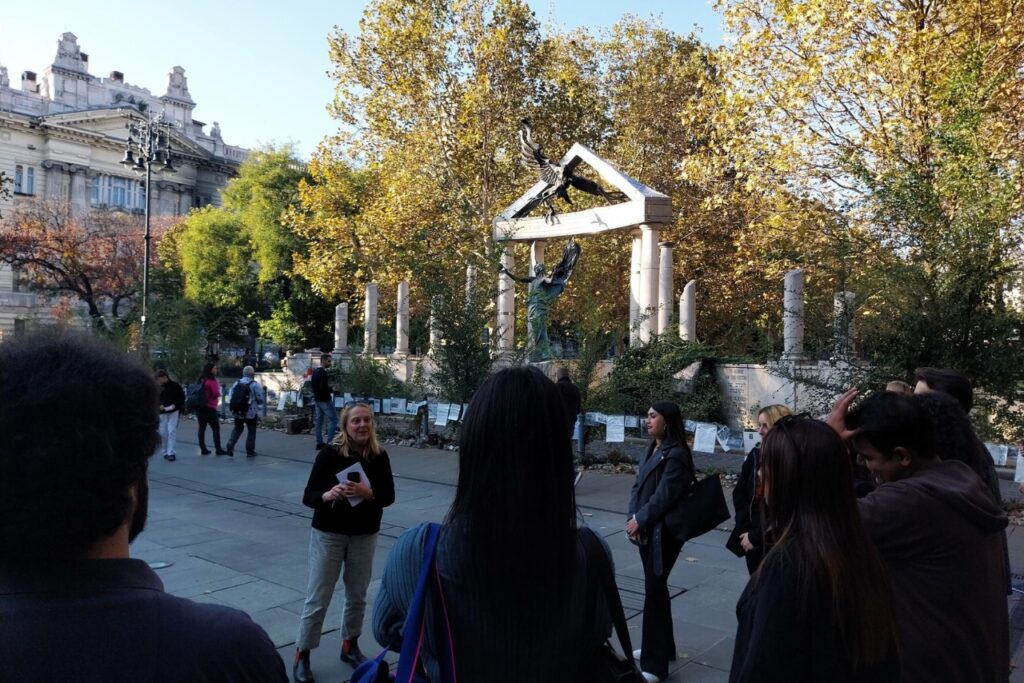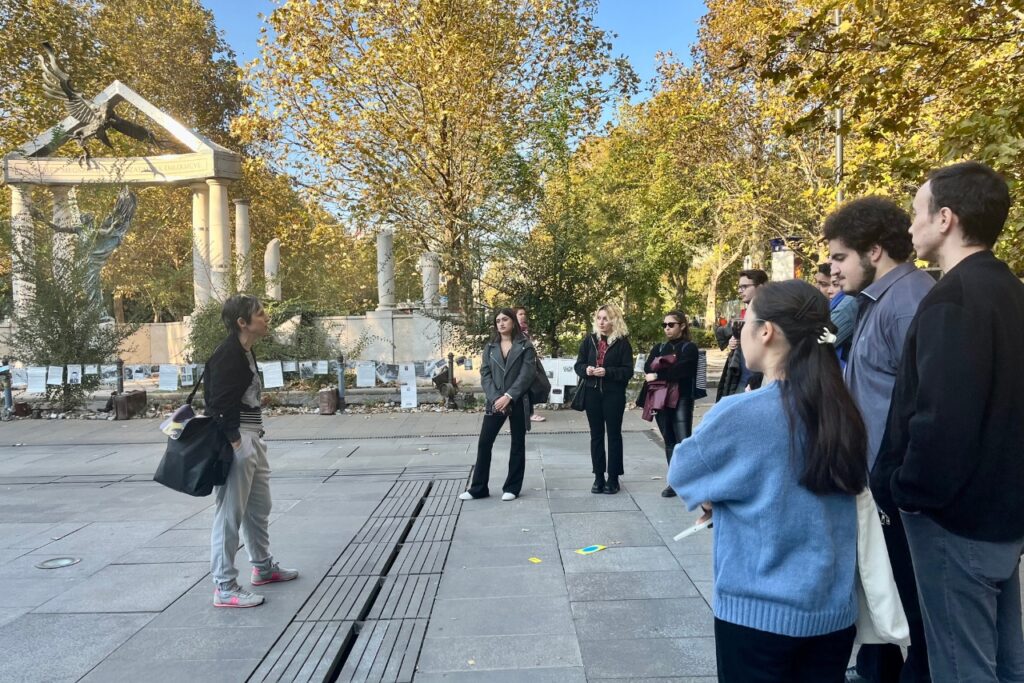Competing and politicized historical narratives in public spaces and museums: IR MA students visiting the Liberty Square and the House of Terror
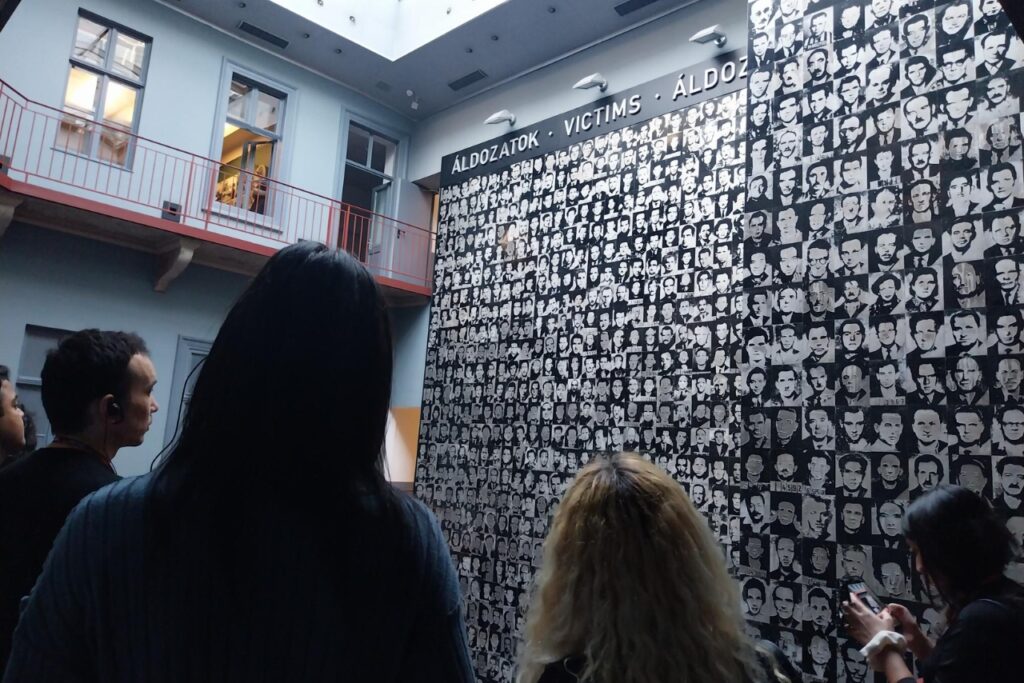
22 October 2024 | 15:00-18:00 | Liberty Square & House of Terror
In the framework of the MA course ’Regime Types and Human Rights’, a group of students attended a special class in the city. Accompanied by course leader Eszter Kirs (Department of International Relations) and Prof. Cynthia M. Horne (Western Washington University, Fulbright Visiting Researcher at the Corvinus), they explored the sites of the Liberty Square rich in the physical manifestations of competing historical narratives. The Soviet War Memorial (never removed despite the change of regime in 1989), the statues of Ronald Reagan and George H.W. Bush, beside the Memorial for the Victims of the German Occupation (depicting Hungary as a victim of Nazi aggression, ignoring the state’s active participation in the deportation of Hungarian Jews, Roma, homosexuals, and other victims) and the Living Memorial, opened a wide space for discussions on ambiguities regarding transitional justice, competing and politicized historical narratives.
After exchanging thoughts about the political and social roots of failures in properly addressing past mass atrocities, the group walked to the House of Terror to visit the permanent exhibition on the impact of the Nazi and Communist totalitarian regimes. The visit provided an excellent opportunity to reflect on historical narratives built on victimhood and heroism and the gaps in facing the multiple layers of responsibility of public authorities, churches, and average citizens in mass atrocities.
Cynthia M. Horne is a Professor in Political Science at Western Washington University. She teaches courses on international and comparative political economy, transitional justice, development, globalization, and international relations. Her research portfolio engages transitional justice, globalization, and development questions. She is broadly interested in if and how transitional justice has affected various state-building and societal reconciliation goals, such as creating trustworthy public institutions, building a trustworthy state, and supporting democratization and good governance. She is also curious about women’s engagement and empowerment in global affairs.
